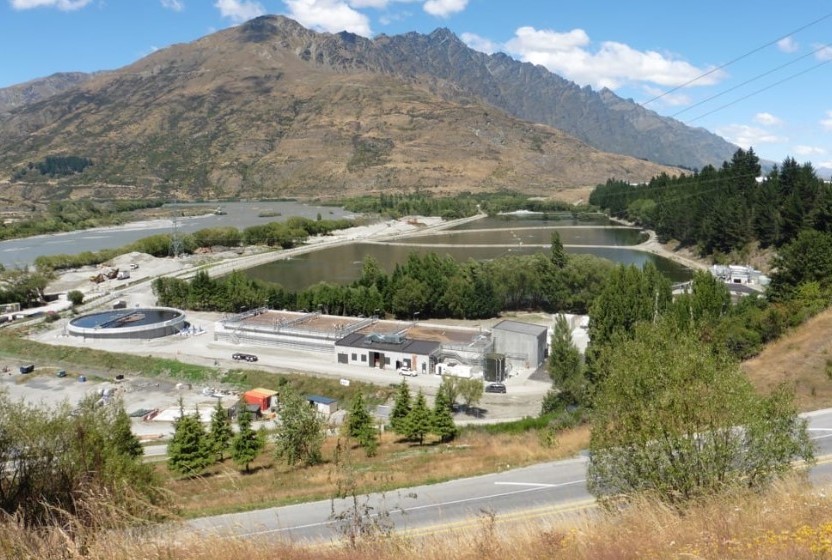Waste water plant problems go to Environment Court

Queenstown's failing disposal field at Shotover Waste Water Treatment Plant is now in the hands of the Environment Court.
Following a year-long investigation, the Otago Regional Council has pushed the button and is seeking an Enforcement Order from the court against Queenstown Lakes District Council.
The disposal field is designed to allow treated water from the waste water plant to soak into the ground prior to entering groundwater and ultimately the Kawarau River.
But it has been plagued by problems, resulting in persistent ponding and spillover.
That means QLDC, which owns and operates the plant, is not complying with consents issued by ORC, which is responsible for freshwater regulation.
ORC has issued two abatement notices in the past year and 10 infringements, but is now seeking stronger enforcement, although it is not seeking prosecution over the problems.
ORC’s Chief Executive Richard Saunders says that recent tests of the discharge show a high level of treatment indicating that there would be no adverse effect on water quality in the river.
"While tests have shown the discharges to be highly treated, we want QLDC to be compliant with its consent. It’s up to the Environment Court to determine a decision on compliance,” he says.
It's seeking the Enforcement Order under section 316 of the Resource Management Act 1991.
“It’s vitally important for the environment overall that consent holders achieve compliance with their consent conditions,” he says.
Saunders explained there is a distinction between seeking an Enforcement Order and seeking a prosecution.
An Enforcement Order is a court issued directive requiring certain actions to be taken within set time frames to fix a problem, while separately, prosecution is a merely a punitive approach and does not address the underlying cause of non-compliance.
He says an Enforcement Order itself is an "escalated" form of compliance action, and if approved by the Environment Court, would require QLDC to take specified actions to avoid, remedy and/or mitigate adverse effects on the environment at the Shotover Wastewater Treatment Plant.
Saunders emphasised any decision on the Enforcement Order application will be made by the Environment Court.
He says the investigation was the “highest priority” for ORC, and takes its role as regulator seriously, noting the investigation process has taken up significant staff time and expertise.
ORC tests in recent months show the discharge from the treatment plant is “highly treated” and complies with the limits set in consent conditions and is well below the contact recreation guidelines.
QLDC issued a media statement last week saying the disposal field was introduced in 2019 due to "cultural sensitivities around direct to water discharges".
"While Council respects this land contact for the important cultural function it plays, it isn’t relied on as part of the treatment process," the QLDC statement says.
ORC will still be working directly with QLDC staff and will continue to monitor the treatment station and undertake further testing if and when necessary.








